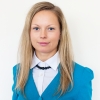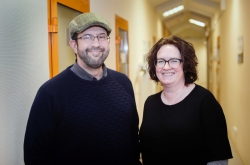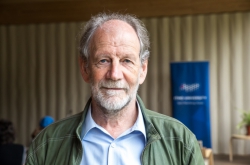As the Rector explained, the change has to do with the need for business to develop and expand beyond the university's limits. The university aims to train specialists who will be in demand on the market in the era of digital economy. Another goal is the development of a scientific and technological knowledge.
"The university’s ecosystem is focused on people, not projects. An innovative project can be one of the tools for self-fulfillment and achievement of goals. These goals can be individual, set by a team or set by the university as a whole. The university can’t do proper business. It’s not an industrial corporation; it doesn’t actually produce any commercial product. However, it can create the right conditions, under which the science-based businesses and products are able to grow and develop thanks to human effort; the people themselves are the most important element of this ecosystem," - comments the Rector.
According to Vladimir Vasilyev, universities are not very good at doing business. Therefore, the ecosystem should take the lead and contribute to entrepreneurship. ITMO will fully support and develop the acceleration of its projects and the innovative infrastructure will contribute greatly to it.

Vladimir Vasilyev
"The main obstacle on the way to creating a stable flow of high-quality innovative projects within a university ecosystem is the situation in which a university takes up a role it shouldn’t and allocates its resources incorrectly. Its reason lies in the way of thinking. Universities should carry out their mission, but not in any way replace the innovative infrastructure and the industrial sector," - continues Vladimir Vasilyev.
The acceleration program Future Technologies (FT) will remain the main project of the new incubator. More than 50 projects in the fields of IT, medicine, food technology, biology, chemistry, innovative production, etc. have been developed within FT since its launch in 2015. Around 20 projects have already found investors and are already available at different markets. During each of the program's 3-5 months-long sessions, projects evolve from a primary prototype to an MVP (Minimal Viable Product), work out their market entry strategy, attract investments and make their first sales. ITMO.REGIONS - a trans-regional network of startup schools - is another important program which will be incorporated in the new incubator.
The classic model, in which a university's business incubator provides services to its residents in exchange for a fee or a share in the company's capital, doesn't work. A viable solution lies in creating a new structure of the innovation ecosystem within the university which is not limited to the business incubator and unites all talent and intellectual potential of the entire university. It will result in increasing the efficiency of the whole system: by attracting non-monetary revenue, the expansion of the project funnel and the implementation of complex projects that will help boost the business of innovative companies," - says Elena Gavrilova, head of ITMO’s Business Incubator.

"Ecosystem of Innovations" forum. Source: innovation360.ru
According to Mrs. Gavrilova, the following value-adding chain can be worked out on the basis of ITMO Highpark (a new scientific, educational and innovation-production cluster to be built in the south of St. Petersburg): a student develops their idea in a lab, this technology is then "wrapped up" and becomes an actual product within the accelerator and a physical prototype is built at ITMO’s Prototyping Center. Next is the production of a pilot batch at the distributed manufacturing center. And, finally, the product is integrated into the technological chain of a partner company.
ITMO’s Business Incubator was established in 2012. In 2016, its residents attracted more than 100 million rubles in investments and grants. And last year, the analytical company UBI Global deemed it the university business incubator of the year. Internet Initiatives Development Fund (IIDF) also recognized it as the "Incubator of the Year" in 2017.
The incubator owes its success to its founders, the Kudinov brothers - Vladislav, Mikhail (ITMO graduate) and Igor, as well as Rector Vladimir Vasilyev's support of the initiatives proposed by students and staff of the university. The Kudinov brothers have also launched the SumIT accelerator as part of the incubator in 2012. As of now, more than 80 companies have graduated from it. VeeRoute, the Kudinov brothers’ startup for logistics optimization, which used to be a resident of the incubator, was awarded "Startup of the Year" several times. The company attracted $1 million in direct investments from the Bank Saint Petersburg in 2017.

ITMO's Business Incubator's event
ITMO University is currently helping start-ups enter the international market through partner acceleration programs with Startup UCLA (USA), MIT Global Startup Labs, XYAMK University (Finland), Helsinki Business Hub. ITMO also participates in major start-up forums: *ship, SLUSH, etc. In addition to that, the Department of Technological Entrepreneurship and Innovations has been operating as part of the incubator since 2015.







